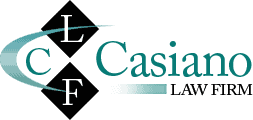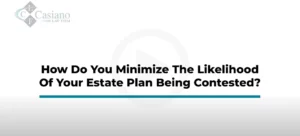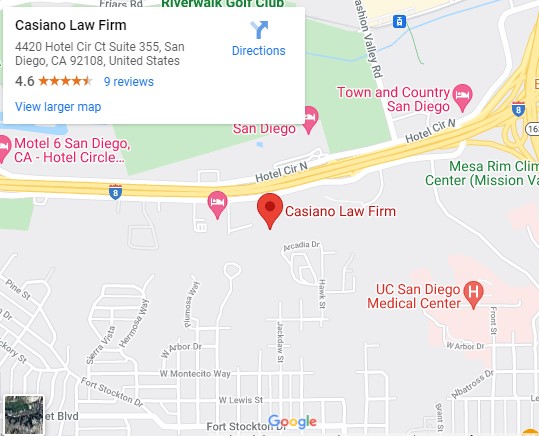Avoid Undue Influence on Estate Planning
Are you concerned about estate plan and want to know what you can do to avoid undue influence issues to ruin your plans’ future? If so, you should know that there are steps you can take to protect yourself and your loved ones. Casiano Law Firm in San Diego, CA is here to help.
San Diego, CA estate planning attorney Vincent Casiano can provide you with guidance and legal advice and also offers a no-charge phone consult to discuss what you can do to avoid undue influence. With his help, you can ensure that your wishes are respected and that your estate is handled according to your wishes. Give him a call now!!
What is Undue Influence?
California law defines undue influence as the use of coercion, manipulation, or fraud to influence a person to act in a way that is contrary to their own free will. This can occur during the estate planning process when a person is pressured to make changes to their will or other estate planning documents. Probate & Estate Litigation Attorney Vincent M. Casiano in San Diego, California can help individuals who believe they have been the victim of undue influence during the estate planning process.
The following are examples of undue influence:
- An elderly person is pressured by a family member to sign a will that leaves all of their assets to that family member, even though the elderly person had previously indicated she wanted all of her children to inherit equally
- A caretaker convinces an elderly person to change their will to leave the majority of their estate to the caretaker. The caretaker uses guilt and fear tactics to manipulate the elderly person into making the changes, such as threatening to leave them if they don’t comply. The caretaker also isolates the elderly person from family and friends, making them more dependent on the caretaker.
- A financial adviser committing undue influence and fraud would be if the adviser convinced an elderly client to invest their life savings into a high-risk investment without fully disclosing the risks involved. The adviser may have used their position of trust and authority to manipulate the client into making a decision that was not in their best interest.
Other examples of undue influence abusers can include parents, children, spouses, partners, trustees, beneficiaries, lawyers, pastors, physicians, administrators, guardians, fiancés, neighbors, and beyond.
What Constitutes Undue Influence in a Legal Context?
The legal elements of undue influence in California are outlined in California Welfare and Institutions Code section 15610.70(a). This section states that a person is subject to undue influence when they are subjected to “excessive persuasion that overcomes the free will and results in inequity.” In order for a court to find that undue influence has occurred, it must be proven that the person was subjected to “excessive persuasion” and that this persuasion caused them to act in a way that was not in their best interests.
The court will consider several factors when determining whether undue influence has occurred, including the age, mental capacity, and physical condition of the person; the relationship between the parties; the presence of any threats or coercion; and any other factors that may have contributed to the person’s decision. If it is found that undue influence has occurred, then the court may set aside any transaction or agreement that was entered into as a result of the undue influence.
How Can Undue Influence Be Proven?
Vincent Casiano of the Casiano Law Firm in San Diego can prove undue influence by gathering evidence such as financial records, emails, and witness testimony to show that the victim was coerced or manipulated into making decisions that were not in their best interest. He can also look for signs of isolation, manipulation, and intimidation to show that the person was not acting of their own free will.
Does Undue Influence Only Apply to Those Who Are Mentally Ill?
No, undue influence does not only apply to those with mental deficiency. It can also apply to those who are vulnerable due to age, illness, disability, or other factors that make them more susceptible to manipulation.
For example, an elderly person may be taken advantage of by a caretaker who pressures them into signing a contract or making a financial decision that is not in their best interest. Similarly, a person with a disability may be coerced into signing a contract that is not in their best interest.
What Does Undue Influence Have to Do With Probate, Will, Trust, Estate, and Conservatorship Litigation?
Undue influence is a legal concept that can be used in probate, will, trust, estate, and conservatorship litigation. It is a form of fraud or coercion that is used to persuade someone to act in a way that is not in their best interests.
In probate litigation, undue influence can be used to challenge the validity of a will or trust. In estate litigation, it can be used to challenge the validity of a transfer of property or assets. In conservatorship litigation, it can be used to challenge the appointment of a conservator or guardian. In all of these cases, the court must determine whether the person was unduly influenced and whether the transaction should be set aside.
Undue Influence and the Burden of Proof
When it comes to estate planning, wills, trusts, and other legal documents, undue influence can be a major issue. In San Diego County, the Probate Court is responsible for overseeing these matters and ensuring that the wishes of the deceased are respected. Trust Litigation and Probate Litigation Attorney Vincent Casiano is an experienced attorney who can help those who believe that undue influence has been used to alter a will or trust.
Attorney Vinny has extensive experience in trust litigation and probate litigation, and he understands the burden of proof that must be met to prove undue influence. He can help clients understand their rights and ensure that their loved one’s wishes are respected. He can also provide guidance on protecting your estate against undue influence in the future.
If you believe that undue influence has been used to alter a will or trust in San Diego County, contact Trust Litigation and Probate Litigation Attorney Vincent Casiano today for a no-charge phone consult. He can help you understand your rights and ensure that your loved one’s wishes are respected.
Is There a Measure or Test for Undue Influence?
The government has identified four elements that constitute undue influence, as per California legislature and California Welfare and Institutions Code section 15610.70:
- Vulnerability of the victim: This includes incapacity, illness, disability, injury, age, education, impaired cognitive function, emotional distress, isolation, or dependency. It also includes whether the influencer knew or should have known of the alleged victim’s vulnerability.
- Apparent authority of the influencer: This includes status as a fiduciary, family member, care provider, health care professional, legal professional, spiritual adviser, expert, or other qualification.
- Actions or tactics used by the influencer: This includes controlling necessaries of life, medication, the victim’s interactions with others, access to information, or sleep; use of affection, intimidation, or coercion; initiation of changes in personal or property rights; use of haste or secrecy in effecting those changes; effecting changes at inappropriate times and places; and claims of expertise in effecting changes.
- Equity of the result: This includes the economic consequences to the victim; any divergence from the victim’s prior intent or course of conduct or dealing; the relationship of the value conveyed to the value of any services or consideration received; and the appropriateness of the change in light of the length and nature of the relationship. It is important to note that evidence of an inequitable result alone is insufficient to prove undue influence.
What Are The Forms of Influence That Are Not Necessarily Undue?
It is essential to be aware that a certain degree of influence is acceptable, as long as it is not “excessive”. For instance, it is usually not wrong for a daughter to persuade her father to leave her the family holiday home. However, if the father is in a vulnerable state – maybe he is sick or weak and the daughter is his caretaker – a court may decide that he is vulnerable to undue influence and that the daughter improperly influenced him to alter his will.
Protecting Your Estate Plan: Steps to Reduce the Chances of Undue Influence Claims
Estate planning is an important part of ensuring that your wishes are carried out after you pass away. However, certain risks can arise, such as undue influence claims, that can disrupt your estate plan. Here are some steps you can take to reduce the chances of undue influence claims and increase the odds your wishes are carried out.
- Create a will or trust that clearly outlines your wishes.
- Make sure all beneficiaries are aware of their rights and responsibilities.
- Choose an executor or trustee who is trustworthy and reliable.
- Have a lawyer review your estate plan to ensure it is legally sound.
- Keep your estate plan up to date with any changes in your life.
- Make sure all documents are properly signed and witnessed.
- Avoid making any changes to your estate plan shortly before death.
- Establish competency: Make sure that you are of sound mind when creating your estate plan. Have a doctor or other qualified professional assess your mental capacity.
- Include a no-contest clause: This clause states that any beneficiary who challenges the will is not entitled to receive any assets from the estate.
- Avoid the appearance of undue influence: Make sure that all beneficiaries are aware of their rights and responsibilities under the will. Also, make sure that all beneficiaries are treated fairly and equally.
It is also important not to bring any of your children to see a lawyer in order to avoid undue influence disputes concerning your will. This is because having a child present during the drafting of a will can create the perception that the child has influenced the parent’s decisions, which can lead to disputes over the validity of the will. By avoiding having any of your children present when discussing or drafting your will, you can help ensure that any decisions made are based solely on your own wishes and not those of your children.
San Diego, CA Estate Planning Attorney Today!
There is always the possibility of an heir contesting your estate plan if it leaves them with a smaller inheritance than they anticipated. The likelihood that an unhappy beneficiary will dispute your plan in court can be reduced by using these tactics. Vincent Casiano can handle any worries you may have about your family’s ability to challenge your estate plan.
Don’t wait until it’s too late – contact the Casiano Law Firm today to learn more about what you can do to avoid undue influence claims.


